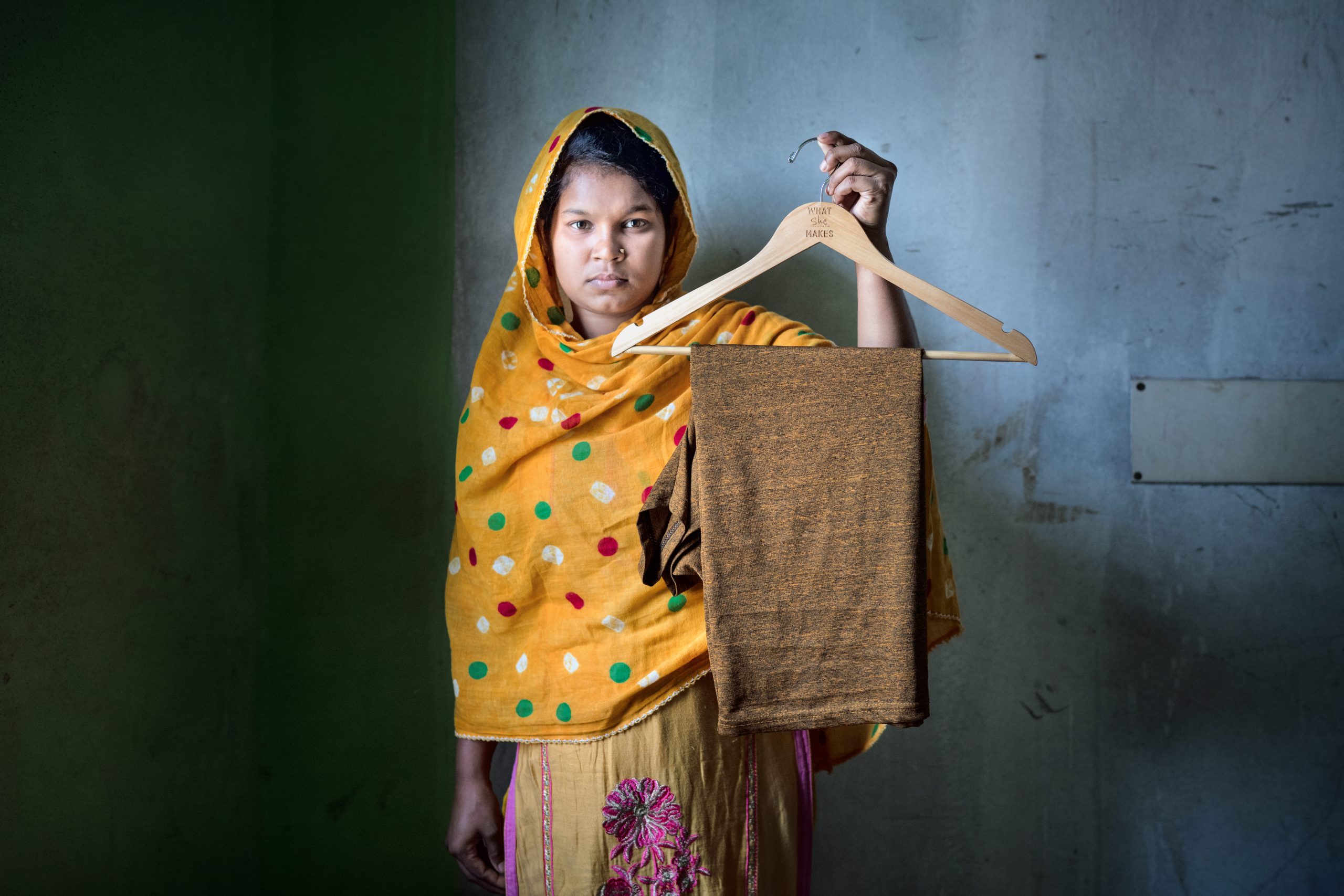“I have a target to make 1440 pieces in 8 hours, 180 pieces per hour. I make 1410 – 1420 pieces.”
Rumi works in a garment factory, matching the back and front parts of T-shirts.
Rumi completed her high school education, but was unable to pursue further studies due to a family crisis that forced her to move to the city and support her family at the age of 17.
Rumi’s two younger sisters now live with her and she bears the cost of their educational expenses. But on her low wage, she’s finding it impossible.
Although working conditions in many factories have improved since Rana Plaza, the women who make are clothes often still don’t have enough money to live on.

“Our salary is not enough, Prices of sugar, salt, and rice have increased, and the raw food market becomes expensive, and it is not sufficient for us.”
Poverty wages exacerbated by rising cost of living place many garment workers in difficult situations.
I dream a lot, but I cannot do anything, nothing changes, all my dreams fail. I want [people around the world] to buy our works with fair value. We wish to earn and live appropriately with that. That’s all I want.”

“My salary is not enough to run the family, and when I get sick, I cannot afford proper treatment. If our salaries increased it will be better.
I dream of getting a good job and getting married properly in a good environment. I want to live peacefully.”
“If I have children in the future, I wish to raise them properly as good human beings. I don’t want to work in garment factories anymore. I dream to live a peaceful life with my children in the future.”
Together, we’re tackling poverty in the fashion industry
Stand with the women who make our clothes. Add your name to demand big brands pay a living wage.
ACT NOWAjirun was less than 15 years old when she first started working in a garment factory. Now at 47 years old, she has spent the last ten years on pain medicines and has made no income.
Ajirun is a survivor of the 2013 Rana Plaza collapse. Ajirun had worked at Rana Plaza for nine months prior to the collapse and had a fixed salary of 4500 taka [$62 AUD].
On Tuesday [23 April 2013], a crack appeared in the building. On Wednesday morning [24 April 2013], Ajirun and her colleagues were hesitant to enter the factory.
After being instructed by her manager that the building was safe and that if they don’t start work, they will miss out on pay. Ajirun and her colleagues agreed to enter the building.
That day, I couldn’t concentrate on work, and my mind was telling me I was in danger. I thought about leaving and didn’t think about salary. After thinking that, I told my helper “I don’t want to work today. I am feeling anxious inside. My throat is getting dry. I want to leave.” Then my helper replied, “You cannot go, the main gate is locked.”
“After listening to that I felt fear in my chest.”
Shortly after the building collapsed.

